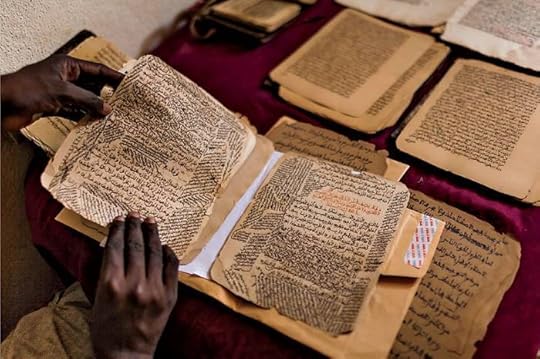"Yes, the jihadi warriors had thoughtlessly burned their own sacred book--multiple copies were destroyed in the fire, Bouya noted."

Excellent article up at Outside on the lengths the people of Timbuktu were willing to go to last year to save their long protected (and centures old) books and manuscripts from an invading jihad. Here's a bit on what books have always meant to the people of Mali who dwell on the Niger River:
The skies had been smudged with Saharan sands all day, but this blew out at night, leaving an enormous Milky Way overhead. When Scottish explorer Mungo Park first came down this river in 1795, he was astonished by what people requested: they wanted paper. In the 1840s, the explorer Heinrich Barth gave away reams of the stuff and described traders wandering the desert with nothing but books to sell. Illiterate Africa was a myth. Words--books--had always been necessary.
And this is just a taste of what the people of Timbuktu did to save their books:
"Then, in August, we found the solution," Traore said. Late at night, they began to pack up manuscripts, stuffing them into old rice sacks. Just the packing took a full month and involved dozens of men from several book-owning families. Traore hired five donkey drivers to carry the thousands of manuscripts--no one could count them all--out of the dispensary around midnight, every night for a week. They loaded the donkeys, and then Traore's 72-year-old grandfather, the retired guardian, walked point, scouting for jihadi patrols. Each night, they distributed books to a different house, joining the small number of high-priority works smuggled out of the main library by underwear.
Go. Read the whole article. It will make you believe in the goodness of the world again.
[Post pic: Malian calligrapher Boubacar Sadeck consults an ancient manuscript at his home in Bamako, Mali. Photo: Marco Di Lauro/Reportage by Getty Images.]




